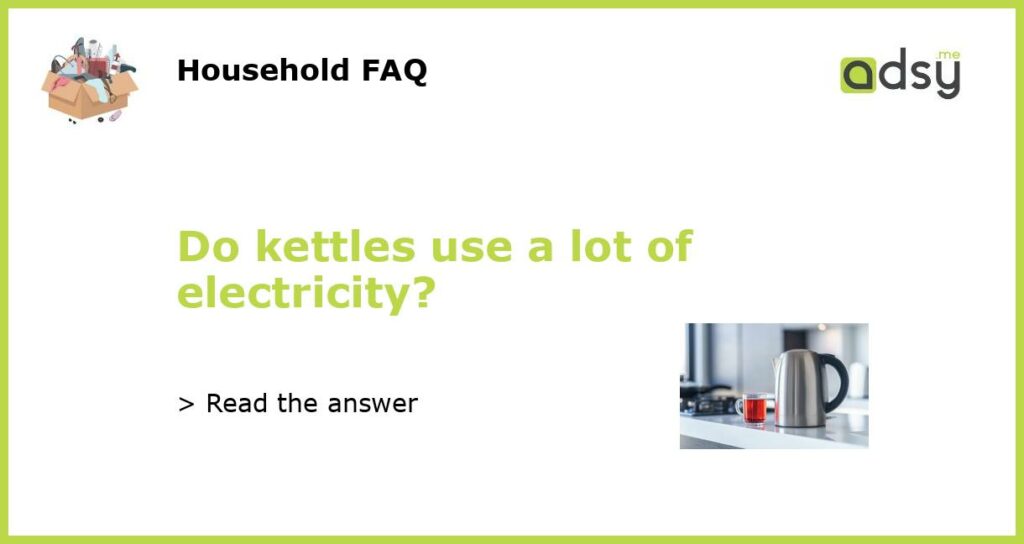Yes, kettles use a considerable amount of electricity
Kettles are one of the most common household appliances used for boiling water. However, many people wonder how much electricity they consume and if this usage is significant. The short answer is yes, kettles do use a lot of electricity, especially when compared to other appliances in the kitchen.
The power consumption of a kettle
One of the reasons why kettles consume a lot of electricity is their power rating. The average power rating of a kettle is around 1500 watts, which means that it uses 1.5 kilowatts of electricity per hour. If you consider that the average boiling time for a kettle is around 2-3 minutes, this translates to approximately 0.05 kilowatt-hours (kWh) of electricity per use. This may seem insignificant, but it can add up quickly if you use the kettle multiple times a day.
Comparing kettle consumption to other appliances
To put the energy consumption of a kettle in perspective, let’s compare it to other common household appliances. A standard light bulb, for example, uses around 60 watts of electricity. If you were to leave a light bulb on for an hour, it would consume 0.06 kilowatt-hours (kWh) of electricity. In comparison, a kettle consumes roughly the same amount of electricity in just a few minutes of use.
An electric hob or stovetop, which is used for cooking, generally has a power rating between 1200 to 1800 watts. While it has a lower power rating than a kettle, it usually operates for a longer period of time when preparing a meal. This means that the total energy consumption of an electric hob can be higher than that of a kettle in the long run, but for any individual use, a kettle uses more electricity.
Tips for reducing kettle energy consumption
If you are concerned about the electricity usage of your kettle, here are a few tips to help reduce its energy consumption:
- Only boil the amount of water you need: Filling the kettle to its maximum capacity every time you use it will needlessly consume more electricity. Instead, try to measure the amount of water you need for your intended use to reduce wasted energy.
- Use the kettle efficiently: Make sure to switch off the kettle as soon as the water reaches its boiling point. Leaving it on for any longer will only waste electricity. Also, avoid unnecessary reboils by using the boiled water immediately.
- Consider alternative methods: If you are making multiple drinks or need hot water for cooking, consider using a kettle with a larger capacity or boiling water on the stove if it is more energy-efficient for your needs.
Kettles are undoubtedly convenient appliances for boiling water, but they do consume a significant amount of electricity. With their high power rating, the energy consumption of a kettle can add up quickly, especially with frequent use. However, by being mindful of your usage and following energy-saving tips, you can help reduce the impact on your electricity bills and the environment.






